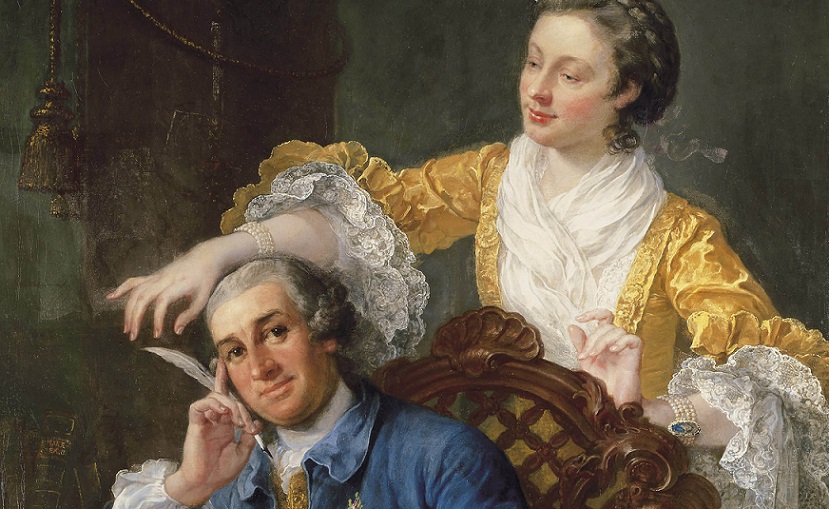As I grow old and frail,
you will support me still.
If I should shout or rail,
calmly, you peace instill.
If I judge unfairly
against innocent cause;
you say to warily
apply the rule of laws.
As I grow old and frail,
you love without reserve;
good humor, without fail,
is more than I deserve.
And in the twilight years,
on you I can rely;
these peaceful, ebbing years,
with you alone I lie.
Martin John King is a retiree living in Somerset, England.
















Very beautiful, as I grow old myself…
Thank you Joe, glad you like it.
Martin, Hello.
1. Line 4 reads: “Calmly, you peace instill.” It is trochee – iamb – iamb, as I read it. I like the sound of this line. It is an elegant metrical substitution from the iambic trimeter in most of the poem
2. I have three thoughts about the second stanza. First, the word “warily” doesn’t seem to fit. My dictionary says it means “suspiciously” or “in a way that shows lack of trust.” The narrator’s partner would use that word only if he or she were fearful of how the narrator might react. However, “_arily” is too pretty of a rhyme sound to give up on. Second, I think of people as being innocent or guilty, not of causes being innocent or guilty. A better adjective for “cause” might be “good” or “noble.” Third, “against innocent cause” sounds awkward to me, because normally one would say “an innocent cause” or “the innocent cause.” Here is one option for dealing with these three issues, should you choose to do so:
If I should act contrarily,
against a noble cause,
you’ll say that I must verily
apply the rule of laws.
3. I think the fourth stanza would benefit if “years” had a rhyme partner other than itself. One easy fix would be to change: “And in the twilight years,” to “And as the twilight nears,”
4. I very much like the consonance in line 16.
5. Any poem that expresses love and kindness and caring toward a partner is virtually guaranteed to be a success, at least in the mind of the partner who is presented with the poem. Assuming this poem is written about your partner, my recommendation is to frame it, wrap it, and present it to your partner on Christmas morning. I like the poem.
Thank you Mark for taking the time to analyse my poem.
Looking on Google, I found warily to mean cautious and careful, which is exactly what I intended.
In my dictionary “cause” has many definitions including “the side taken by a party in a dispute” or in simple terms a difference of opinion.
I like your suggestion of nears instead of years, so for that I thank you again for your review.
Yeah, “warily” must have a different meaning on the other side of the pond, ‘cos in the UK it’s always been used in the sense of “to proceed with caution” or “do something carefully” . . . as in “he trod warily down the steep steps”.
Whist writing the last paragraph: it occured to me that the word “beware” might come from “be wary” . . would that be right?
A quietly moving, nicely-written poem. From one West Countryman to another, well done!
Hi Monty,
I am not an academic but it sounds like it ought to. Thanks.
Hi Dave,
Thanks for your kind comments.
Have you ever wondered about “breakfast “? – break/fast?
There was a time when ‘breakfast’ was an act, not a meal: the act of ‘breaking the fast’ which had occurred during sleep.
Well, this is one thing I can speak to, at least for the Roman Catholic church. As late as the 1950’s, you were required to abstain from solid food from midnight until you received Holy Communion. Afterwards, you could enjoy breakfast. This was eventually reduced to 3 hours for food, 1 hour for liquid, and no fast for water. Finally then reduced to one hour for anything but water, and now fasting is not done at all because people just don’t do it. Now when people wake up, they eat, and it breaks the unintended fast that began when they went to bed. No big deal. Of course we also have brekkie, brunch, lunch, tea time, cocktail hour, supper, dinner, banquet, midnight snack, last call, and alka-seltzer. So much food, so little time.